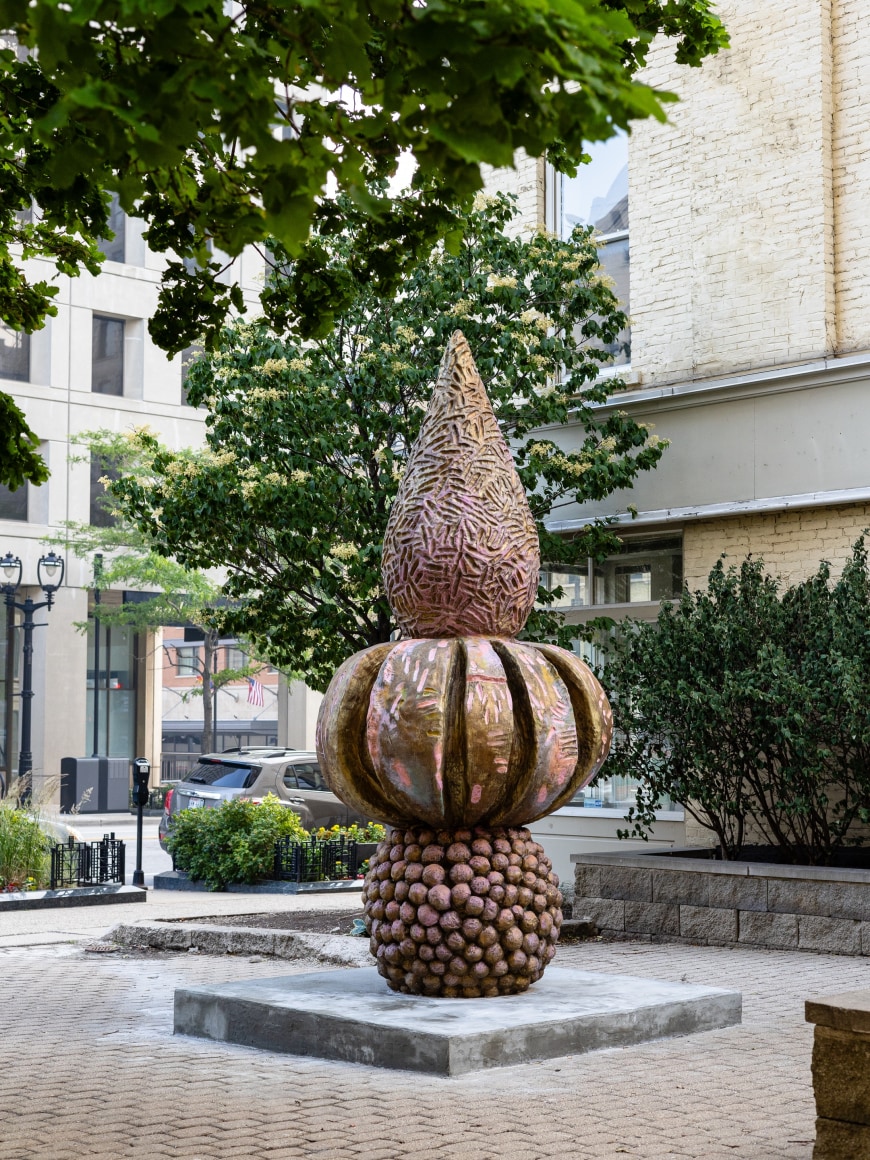Erika Verzutti is a Brazilian artist known for her sculpture, installation, and painting, through which she blends modernist, contemporary, and Paleolithic forms using ‘known’ or found objects - namely fruits and plants. Her compositions reference the origins and materiality of sculpture, and its inherent role in culture, particularly when displayed in public spaces.
In Venus Yogini, a momentous arrangement of stacked graviola and pumpkin references the upside down profile of the earliest known sculpture - Venus of Willendorf, a figurine created roughly 30,000 years ago representing fertility. Imbued with expressive textures and painterly patches of color, Verzutti’s sculptures subvert and recontextualize classical motifs while constructing new perspectives on femininity and fertility.
By manipulating the scale of known fruits and organic forms, Verzutti evokes the enormity of the ecological destruction taking place in Brazil in the wake of increasing global need for natural resources. Venus Yogini standing proudly recalls our history as cultivators of the earth and reminds us to consider the price of our material attachments.
Verzutti has held solo exhibitions at Centre Pompidou, Paris, Aspen Art Museum, Aspen, Sculpture Center, New York, and is her work is present in the collections Tate Modern, London; Carnegie Museum of Art, Pittsburgh; Guggenheim Museum, New York; among others. The first survey of her work in the United States opens June 24th at Bard College in New York.
(Source)

